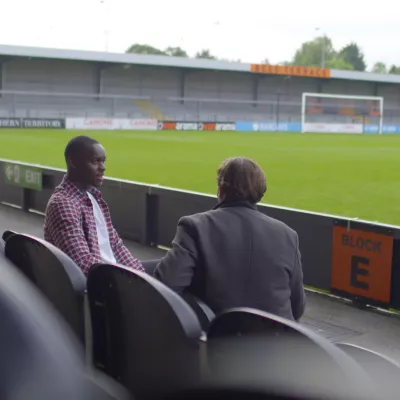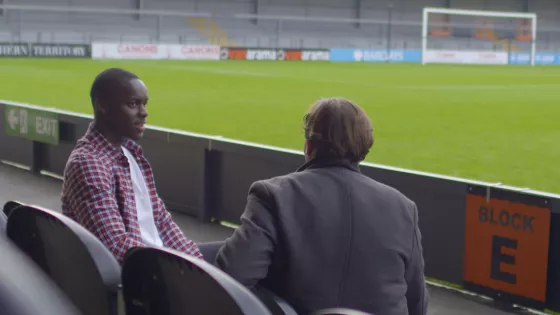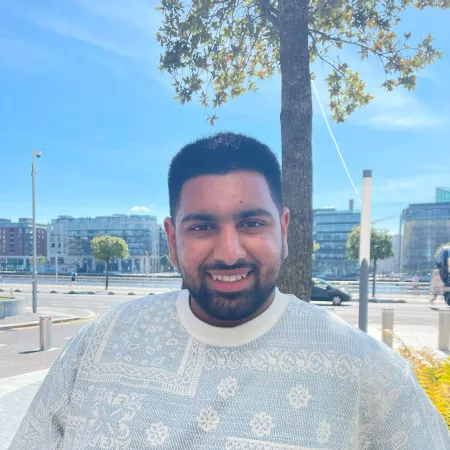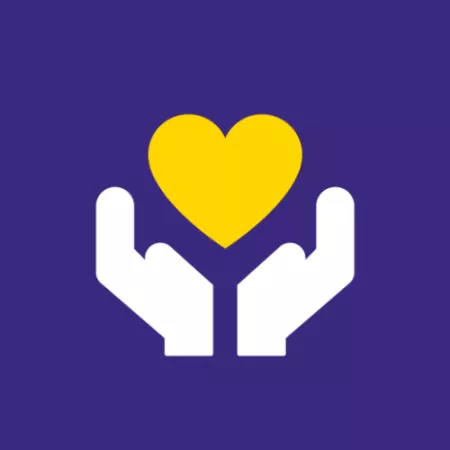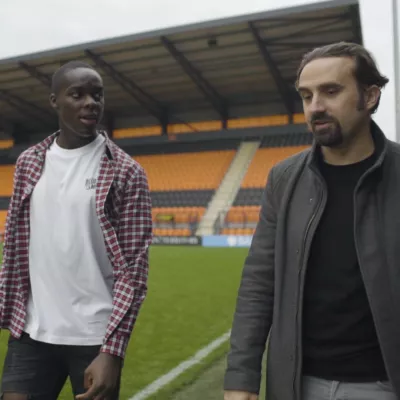
What’s your role in bringing together different people and organisations to help young people with epilepsy to thrive?
We get referrals and information on young people, who reach out to us from a variety of places; parents, nurses, clinics, SENCOs, social workers, and young people who self-refer. We start supporting that individual and try to bring those agencies in as we go.
We check to see if the young person has a social worker and how we can get them involved. If they're struggling in education, we contact the schools and discuss the support they are getting there too.
We participate in a variety of meetings such as TAF – ‘Team around the family’, Child protection conferences, education health care reviews giving guidance on how to support a young person with epilepsy and how we can contribute to their planning moving forward.
It usually happens very organically. Each service will add in their agreed support, but with all these different disciplines, it’s good to have one person at the centre of it all. We become that point of contact, because we're the constant presence, at least temporarily, in that young person's life.
It’s difficult, but you've got to start the ball rolling and make sure they've got everything in place to fight that fight and feel empowered to know and stand up for their rights.
Can you think about a time that you joined the dots for someone?
I was once contacted by a young woman who was 19 years old and at university. She had a long-term history of epilepsy, but she'd been discharged from the place she lived with her parents and wasn't recorded in any neurology service or hospital local to her new uni.
She was initially quoted 22 months to get an emergency neurology appointment. This is someone who's living away from home for the first time, whose epilepsy is getting worse, who’s very isolated.
As an adult, she was responsible for her own care in that situation, but she didn’t necessarily know how to navigate the services she needed, so we started working with her, giving her advice, listening to her and building her confidence.
We sent the details to her local authority, made an adult social care referral, and got a social worker to assess her needs in the university and chase up her GP. We got in contact with student services in the university, so that she could have a mentor with her in lectures to help her take notes as her seizures were affecting her memory and awareness.
We don’t stop working with these young people until we’ve connected those dots and they've got access to the support they need.
How important do you think it is for a young person with epilepsy to have a supportive system of family and friends?
It's really hard to be struggling with the unpredictability that any time you could have a seizure. Therapy helps, medication helps, but having friends and family around you who understand and are there for you is vital for your mental health.
We’ve spoken to the peers of young people to help them understand the condition because they're going to be the people around as they try to get their independence.
In education, for example; if an individual is having absence seizures, their teacher needs to be aware and make sure that they factor that into their teaching.
You need to have a supportive employer, who is prepared to make allowances where required. You could be seizure-free for months or years, but if you suddenly have one, you may need time off, flexibility around hospital appointments and so on.
How have you been able to connect young people living with epilepsy with each other and how have they responded to this?
Pre-pandemic, we organised a series of trips out. We went swimming, kayaking, rock climbing; activities that kids with epilepsy are usually told they cannot do.
It was rewarding because sometimes young people with epilepsy have never met anybody else with the condition.
We encourage young people to stay in contact through moderated WhatsApp groups and that can develop into really supportive relationships. For example, if they’re about to have surgery for their epilepsy, they can talk to another young person who has been through the same thing and it makes them feel less alone.
During lockdown, we set up an online support group on Zoom, open to all ages; even just to listen and not contribute. It gives it an avenue for young people to talk and the response has been brilliant. I was worried they would be too nervous to speak, but suddenly they were talking about the most intimate and complex things, medical needs and so on.
Have the young people you support been affected by isolation and how have you been able to help overcome it?
Isolation is a huge issue in the epilepsy community. It can prevent a person from being able to drive, which limits them and unable to access services, visit people, get into education etc.
Sometimes people can become almost agoraphobic. They don't want to have a seizure in public because they don't know how people are going to react.
During the pandemic, people with epilepsy were even more isolated than they already were. We managed to move all our support online and kept the WhatsApp groups going, so we were still able to meet with young people regularly.
